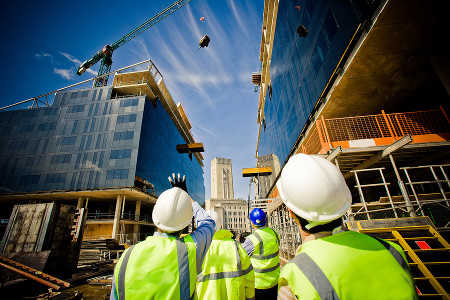Courtesy : Gulf News
Developers in Dubai have so far not passed on the higher VAT-related costs they have been incurring on projects to property buyers. But this is a situation that cannot go on and some sort of price appreciation should start showing up in sales agreements, sources say.
So far this year, there have been two high-profile launches of freehold projects in Dubai, and with premium price tags, including one where the average per square foot price was Dh2,000 and over. And because of the premium on location and quality of build, these projects would have carried similar price tags even before VAT.
But the true test for developers will come when they introduce the next round of sub-Dh1.5 million properties. Will these developers keep price tags at more or less similar levels? Or will there be a 5 per cent or more cost inflation built into their next round of prices?
They are certainly not getting any help from contractors, who have already priced in the VAT factor into their billings from January. “Apart from the VAT element, there has been an increase in key raw material prices, concrete and steel rebars,” said Vinod Pillai, General Manager at the RP Group, whose construction division is a main contractor on multiple projects in the UAE.
“Rebar prices have gained 3.5-4 per cent in the last week or so — and it’s always been a commodity that could go either way in short span. Contractors have been passing on the cost increases — VAT- and non-VAT related — to the project promoters in their invoicing.”
According to market sources, the local construction industry had mobilised early in their VAT preparations, by updating their software and accounting systems and getting even the smaller contractors to do so. And by the time VAT did become a reality, the industry and its players were good to go.
They were in mood either to absorb the VAT costs despite developers — at least some of them — making such demands. But contractors still have had to make some adjustments.
“This is something that developers were resisting on initially, and have tried to renegotiate with us,” said K.A. Siddiqui, Partner at Dubai Walls Construction. “But in most cases, there is at least a partial VAT cost pass through that is taking place.
“In our opinion, this is a trend that will continue as margins for the contractors were already squeezed to begin with. And depending on the clientele, there has been some ability for developers rather than contractors to absorb the higher costs.”
But can contractors keep on absorbing VAT related costs, even partially? Already with payments from clients stretching to months, to take on the additional burden of paying off part of the VAT costs that should be paid by developers.
For the moment, “in certain cases, there is some negotiation taking place between developers and contractors to meet half way on these costs,” said Mohammad Mustafa, Managing Director at Emsquare Engineering Consultants. “However, in all cases we are seeing that some pass through — from the contractor to the developer — is taking place.”
There are also the VAT payments that the main contractors have to pay their subcontractors and then file reclaims with the tax authority. As things stand now, it could take two months for such reimbursements to come through. Sources say it is far more likely that instead of actual pay backs, some sort of readjustments will be made on subsequent claims.
“So, it would not exactly be a cash back, but more of an adjustment on the next payment terms,” said Pillai. “But in the short-term, the main contractor is effectively having a double VAT exposure of 10 per cent — one that he needs to pay the authority and the additional 5 per cent made on behalf of his suppliers, such as for MEP, building materials, etc.

